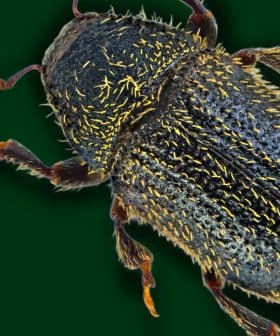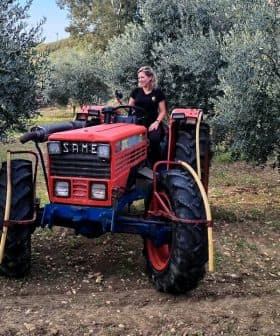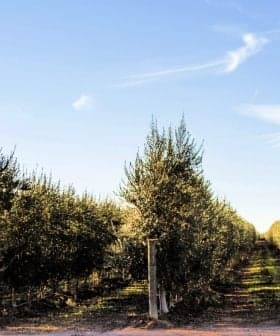New Cleaning Equipment for Olive Mills Saves Water, Money, Study Finds

Research shows that olive oil mills can save €85,000 annually by using a SILAC system to thoroughly clean their equipment at the end of each harvest season, which is necessary to prevent mold and bacteria growth that could affect the quality of the next year’s production. The SILAC system, which uses compressed air and foam detergent, requires less water and detergent than traditional cleaning methods, making it a more cost-effective and efficient option for olive oil producers.
According to research from Juan Vilar Strategic Consultants, olive oil mills could save €85,000 annually by adopting a new system to clean their milling equipment at the end of the harvest.
Thoroughly cleaning the milling equipment at the end of each harvest season is critically important to the success of the following year’s harvest.
Organic material left in the equipment over the summer and autumn facilitates the development of mold or bacteria that will result in lower-quality olive oil production the next season.
See Also:How Olives Are Processed Into OilThe research found that a SILAC system, which uses compressed air and a foamy alkaline detergent to remove olive residue and clean each piece of milling equipment, saves money, time and water.
Traditionally, mill operators would either manually break down the mill equipment and clean each piece or keep the equipment intact and use a fixed-place or portable CIP (clean-in-place) system.
Traditional CIP systems connect to each main component of the mill and pump water and two types of detergent through the equipment to remove any leftover residue and leave the equipment clean and sanitized for the following harvest.
A traditional CIP requires several steps, including a preliminary rinse where water is pumped through the equipment. This is followed by a wash using an alkaline cleaner with a basic pH and another rinse. Next, an acidic cleaner is used, followed by a disinfectant, and a final rinse is completed.
Traditional CIP systems also are commonly used by dairy farmers and beer brewers to clean their machines.
The SILAC system is a type of CIP. However, it uses compressed air and an alkaline foam detergent followed by a water rise. This eliminates several of the steps that involve rinsing from traditional CIPs.
According to data from Masul Chemicals, a company that specializes in cleaning olive milling equipment, as cited by the study, automated cleaning using a CIP requires 46.5 percent less water and 43.5 percent less detergent than manual cleaning.
The automated system also requires fewer people to operate, with one person able to perform the functions that other workers need during the manual cleaning process.
“This pressure machine mainly cleans all surfaces (machinery, hoppers, bands, mixers, tanks, floors, walls, etc.),” the researchers wrote. “The most outstanding feature of the foam system is the significant cost savings, such as detergents, labor (time dedicated to cleaning), energy and above all water, which is currently a scarce resource.”
“Cleaning will be the next revolution within the oil mill sector, requiring it to be established with special emphasis as a strategy to increase the quality of the oils,” they concluded.









